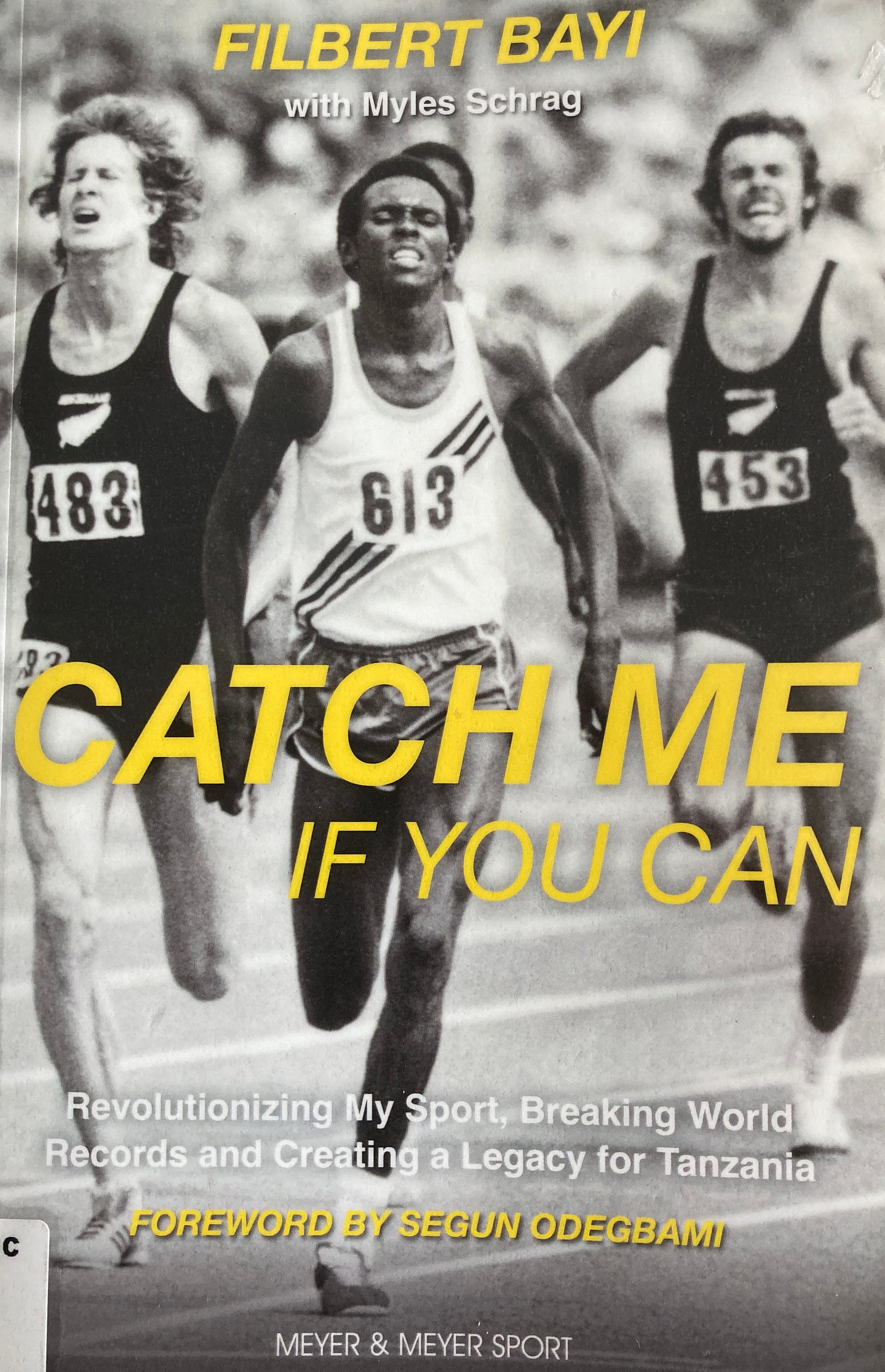Mile memories in kismetic book find
Call it fortuitous, but a recent purchase at a second-hand bookshop proved timely, given the boost to the future of New Zealand middle-distance running and track and field overall, with the success of teenager Sam Ruthe breaking the four-minute mile barrier.
Say whatever you like about metrics, there is, and always has been, a fascination in New Zealand surrounding the mile.
You only have to think of Jack Lovelock, Peter Snell, Murray Halberg, Dick Quax, Rod Dixon, John Walker and Nick Willis, and the places they hold in Kiwi folklore to understand that.
So there was great delight when coming across a book titled Catch Me If You Can, in that second-hand shop about the life of Filbert Bayi, another character imbued in Kiwi minds as a result of his world record-breaking mile that ended the highly successful Christchurch Commonwealth Games in 1974.
It was in such good condition, almost unused, having made its way to the shop from a regional library, it has to be wondered if it had lingered on library shelves sight unseen by an unknowing generation or two of readers.
Never mind, it has renewed life and coming from the same publishing house [Meyer and Meyer] that brought Roger Robinson's Running Throughout Time, it can be accepted as a quality publication.
Bayi's acceptance by New Zealanders of the Walker-Quax-Dixon generation was a rare respect afforded to a foreign athlete. His daring running from the front could not help but be appreciated and understood.
New Zealanders of that time were well acquainted with the emergence of African nations who had been freed from the bonds of colonialism and made their way in the world.
The South African connection through rugby and cricket was a continuing issue, while the efforts of the Norman Kirk Labour Government to increase contact with Africa also lifted awareness of the continent's emergence.
Bayi broke into Kiwi hearts with an infectious enthusiasm and daring in his running.
His story is not well known, his development as a young man seeking education and finding his way in the world. He was disappointed to be unable to compete in the 1976 Olympic Games 1500m, where he and Walker were on a collision course to secure the gold medal.
But the African boycott in response to the All Blacks' tour of South Africa in 1976 while the shameful capitulation of Robert Muldoon to American President Jimmy Carter's outrageous interference in the Olympic Games in Moscow in 1980, something Carter acknowledged later he may have gotten wrong, meant there was no chance for a rematch.
Bayi's story didn't end when his running career finished. In many ways, it was only beginning. His determination to provide educational opportunities for young Tanzanians saw him and his wife Anna set up a school that achieved outstanding results and secured his legacy long beyond what he did in his track and field career.
He helped spread the word through his activities as Secretary-General with the Tanzania National Olympic Committee, the International Olympic Committee and the Commonwealth Games Federation, and many times renewed his association with Walker.
He said of their relationship,
He and I remain lifelong friends, decades past our competitive days. It will always be one of my greatest honours to be connected in people's minds to John Walker.[1]
Rod Dixon also features large in Bayi's world and he acknowledged the way in which the Tanzanian changed the way the mile-1500m were run.
When Filbert Bayi came along, I thanked him and honored him for redefining how it should be run, without all these rabbits and setups, running three laps quietly and then sprinting. He woke us up to how it should be run. You couldn't count on it always being a certain way. The mile became more popular and successful again. Then John Walker was the first under 3:50 and redefined the whole attitude. I know John developed his attitude and focus based on that [1974] race with Filbert...That race Filbert won has had a huge influence in everything I do. The Commonwealth Games was one of my defining movements. And that's Filbert. He's part of my life and my journey.[2]
At the time of writing, his goal was to see a tartan running track, Tanzania's fourth, at his school, the Filbert Bayi School in Kibaha.
His running career may be long behind him, but Bayi is still asking athletes to 'catch him if they can' by his example of devotion to giving young people the chance to excel in their homeland. It is an impressive template of service that is all too rarely seen.
[1] Fibert Bayi, Catch Me If You Can, Meyer and Meyer (UK Ltd), 2022, p.195
[2] Rod Dixon, quoted in Catch Me If You Can, p.214-215



